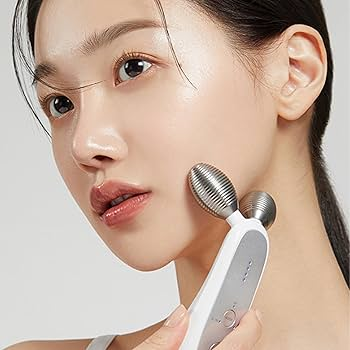Bioretinoid: the Beauty Industry’s New Buzzword
In a beauty industry ever eager for the next big trend, few recent buzzwords have generated as much excitement—or confusion—as "bioretinoids." Positioned as a gentler, plant-based alternative to the much-loved but often harsh retinoids, bioretinoids have stormed the skincare shelves, promising all the benefits of vitamin A derivatives without the associated irritation. Yet, as with many trending beauty ingredients, the reality behind bioretinoids is more complex than their enticing labels might suggest. As they enter the beauty market with great fanfare, it’s crucial to pause and ask: Are these bioretinoids truly the skin miracle they’re made out to be, or are they another case of marketing magic running ahead of scientific truth?
The Retinoid Legacy
Why It Matters
To understand bioretinoids, we must first consider the legacy of retinoids, powerhouse ingredients in skincare. Derived from vitamin A, retinoids are widely regarded as the gold standard for fighting the visible signs of aging, improving skin texture, and treating acne. They work by promoting cellular turnover, stimulating collagen production, and reducing pigmentation, making them a cornerstone in both dermatological treatments and over-the-counter anti-aging products.
Retinoids are not a one-size-fits-all solution, however. They are notorious for causing dryness, redness, peeling, and irritation, which is why many users, especially those with sensitive skin, are put off by their side effects. Despite these drawbacks, retinoids remain a go-to for those serious about skin renewal, making their gentler alternative, bioretinoids, an attractive proposition.
What Are Bioretinoids?
Bioretinoids are plant-derived ingredients that are touted to mimic the effects of retinoids while offering a milder experience. The term “bioretinoid” is often used interchangeably with “retinol alternatives,” but it can sometimes refer to a broad range of naturally sourced compounds that are believed to replicate retinoid activity in the skin. The most popular bioretinoids include bakuchiol, a botanical extract from the Psoralea corylifolia plant, and rambutan extract, a tropical fruit that has found its way into luxury skincare lines due to its purported skin-soothing and anti-aging properties.
While these ingredients are lauded for being less irritating than traditional retinoids, the scientific backing behind bioretinoids’ effectiveness is still developing. Bakuchiol, for instance, has been the subject of several studies suggesting that it can reduce the appearance of fine lines and wrinkles, improve skin elasticity, and enhance skin tone. However, while the results of these studies are promising, they often fall short of the robust clinical evidence supporting the efficacy of retinoids, such as tretinoin.
Bioretinoids vs. Retinoids
How Do They Compare?
To fully appreciate the place of bioretinoids in skincare, it’s important to delve into the key differences between these two categories of ingredients. The primary distinction lies in how they work on a molecular level. Retinoids, including tretinoin, are potent compounds that bind to specific receptors in the skin, known as retinoic acid receptors (RARs). This binding leads to accelerated cell turnover, shedding dead skin cells, revealing fresher skin beneath, and stimulating collagen production.
Bioretinoids, by contrast, do not bind to these receptors in the same way. Instead, they typically operate through broader mechanisms, such as antioxidant effects and anti-inflammatory properties, which can reduce oxidative stress, a major factor in the aging process. Bakuchiol, for example, has been shown to act as a gentle, plant-based alternative to retinoids by regulating the same enzymes that promote collagen synthesis, albeit in a more subdued manner. This means that while bioretinoids may offer some of the benefits of retinoids, they do so with a lower risk of irritation, making them more suitable for sensitive skin types.
But this gentleness comes with trade-offs. For those seeking dramatic improvements in skin texture, pigmentation, or fine lines, bioretinoids may not deliver the same level of visible change as their synthetic counterparts. In clinical studies, bakuchiol has been shown to deliver results comparable to retinol, but this doesn’t mean it can replace retinoids altogether. The question for many consumers becomes whether the milder effects are enough to justify the use of bioretinoids.
The Allure of "Natural" in Skincare
The rise of bioretinoids also reflects the growing trend toward “natural” skincare. Consumers increasingly demand products that align with their values, especially when it comes to sustainability and ethics. Terms like "clean beauty," "green chemistry," and "eco-friendly" are more than just buzzwords; they represent a broader cultural shift towards transparency, environmental responsibility, and holistic wellness. Bioretinoids have capitalized on this movement, with companies touting them as sustainable, plant-based alternatives to retinoids, which are synthesized through chemical processes.
However, this “natural” allure is not without its complexities. While bioretinoids are marketed as plant-based and therefore more environmentally friendly, the production of these ingredients is not always as sustainable as it may seem. Take bakuchiol, for instance. The plant from which it is derived, Psoralea corylifolia, is native to certain parts of Asia and can be cultivated in large quantities for extraction. Yet, the rapid commercial demand for bakuchiol may strain local ecosystems, especially if farming practices are not managed sustainably. Moreover, large-scale cultivation of a single crop can lead to soil depletion and biodiversity loss, making the "eco-friendly" narrative less clear-cut than it may initially appear.
This tension between natural and sustainable is not unique to bioretinoids. The beauty industry has seen a rise in “greenwashing”—the practice of exaggerating environmental credentials—where brands use eco-friendly claims to attract consumers without fully committing to sustainable practices. For consumers hoping to make informed decisions, it is essential to look beyond the surface of marketing language and consider the sourcing, production, and overall environmental impact of bioretinoid-based products.
Efficacy and Consumer Expectations
What the Science Says
While bioretinoids have captured the attention of beauty enthusiasts, the scientific community remains cautious. The studies on bakuchiol, for example, are promising but limited. A study published in the International Journal of Cosmetic Science in 2018 compared bakuchiol to retinol and found that it performed similarly in reducing signs of aging, with fewer side effects. Another study in Dermatology and Therapy noted that bakuchiol could help reduce fine lines and wrinkles without causing the irritation commonly seen with retinol-based products. However, these studies are not as extensive or long-term as those surrounding traditional retinoids, and much of the available evidence comes from small-scale trials.
Moreover, bioretinoids lack the same extensive clinical backing that has established retinoids as the go-to ingredient for skin aging. Tretinoin, for example, has been the subject of decades of research and remains a staple in dermatology for its powerful ability to reduce wrinkles, hyperpigmentation, and even acne. While bioretinoids may be a gentler, more sustainable alternative, they cannot yet rival the comprehensive, proven benefits of retinoids.
Despite this, bioretinoids still have an important place in the skincare market, particularly for those with sensitive skin or those seeking milder alternatives. They provide a way for individuals to experience some of the benefits of retinoids without the typical side effects, allowing for more consistent use without irritation. For those who are just starting their anti-aging skincare journey or for those who cannot tolerate traditional retinoids, bioretinoids offer a more accessible starting point.
REN Skincare Bioretinoid Youth Serum
Take, for instance, REN Skincare's Bioretinoid Youth Serum. The first red flag here isn't necessarily the formulation, but the very name of the product itself. REN, perhaps the most prominent in this category, has trademarked the term "bioretinoid," a move that raises more questions than it answers. While this may seem like a clever marketing strategy to distinguish the product, it brings up a significant concern—if REN has trademarked the term, how are other brands using it without facing legal repercussions?
But setting aside the legal nuances, let’s delve into the product's actual efficacy. REN claims that its Youth Serum offers "retinol-mirroring results" through the use of a plant-derived ingredient called Bidens pilosa—a botanical often referred to as the "bidens extract." This plant, often found in the tropics, is believed to provide benefits similar to retinol by binding to retinoic acid receptors and activating collagen-producing proteins like Matrix Metalloproteinases (MMPs). The company boasts studies showing that this ingredient can improve collagen and elastin production, which in theory would enhance the skin’s firmness and reduce wrinkles.
However, the science behind these claims is still developing, and the clinical evidence supporting Bidens pilosa as an effective retinoid alternative is far from conclusive. While early studies suggest some benefits, the longevity of these effects, particularly in comparison to proven retinoids, remains uncertain. Additionally, the ingredient in question is not, in any real sense, a retinoid—Bidens pilosa is not a vitamin A derivative. This distinction is crucial for those looking to understand why a product like REN’s serum may not have the same skin-rejuvenating powers as a traditional retinoid.
So, while REN’s serum might provide some skin benefits, it’s important to manage expectations. Users may experience improved skin texture, but it’s unlikely to deliver the same dramatic anti-aging effects associated with true retinoid use. For those seeking the more intensive, scientifically-backed results of retinol without the irritation, it’s clear that this product falls short of being a true retinoid alternative.
Kinship
Bio-Retinoid Complex or Just a Clever Marketing Tactic?
Next up is Kinship's 2% Bio-Retinoid Complex, which takes the concept of a "bioretinoid" one step further by incorporating a mix of ingredients that supposedly mimic the benefits of retinol. The brand uses a term that's meant to evoke power and potency: "bio-retinoid." But is there any substance behind this label?
Kinship claims that its bio-retinoid complex, sourced from microalgae Chlorella vulgaris, offers retinol-like benefits without the irritation. This algae-based ingredient does have some merit in the skincare world, as it’s been linked to antioxidant properties and potential improvements in skin smoothness. However, much like REN's offering, the term "bio-retinoid" is problematic—what does it actually mean?
When you take a closer look at the product, you’ll find that the bio-retinoid complex isn’t the primary active ingredient. Rather, the product’s key ingredient is retinal, which is indeed a form of vitamin A, and stronger than traditional retinol. But the amount of retinal in the product is likely very low, considering its position near the bottom of the ingredient list. Kinship has cleverly incorporated this low-level retinal into their "bio-retinoid" complex, but it’s unlikely to have the irritation potential of higher concentrations of retinol, simply because the concentration is minimal.
In essence, Kinship’s Bio-Retinoid Complex is more of a marketing gimmick than a revolutionary ingredient. While it may offer mild skin benefits, it is not a true alternative to retinoids, and its "bio-retinoid" label is ultimately misleading. What it offers instead is a milder, possibly antioxidant-rich product with a hint of retinal—useful for some, but hardly groundbreaking.
InnBeauty Project Extreme Cream
Hydration and Firmness, but Not Retinol
Finally, we arrive at the InnBeauty Project Extreme Cream, a product that has gained significant attention on social media due to its purported ability to firm and hydrate the skin. The packaging promises "plant-based bio-retinol," peptides, and a ceramide complex that offers a seemingly unbeatable formula for smooth, youthful skin.
Upon closer inspection, however, the term "bio-retinol" is a bit of a red herring. Despite the catchy name, the product does not contain any ingredients that truly mimic the effects of retinol, nor does it include any plant-derived retinoid equivalents. Instead, the product is rich in peptides, which play a crucial role in skin health by promoting hydration, improving skin elasticity, and helping with overall skin barrier function. Peptides are an essential part of a skincare routine, particularly for those with sensitive or aging skin, and their inclusion in the Extreme Cream adds value in that regard. But calling it "bio-retinol" is, at best, a stretch.
There’s also a mushroom extract included, which adds additional hydration but does nothing to mimic retinol’s effects on skin turnover or collagen production. It's clear that InBeauty Project is leveraging the marketing appeal of retinol-like products while providing something entirely different—a highly moisturizing, skin-firming cream that may offer short-term cosmetic improvements but falls short of delivering true anti-aging effects.
Are Bioretinoids Worth It?
As with many beauty trends, bioretinoids come with a price premium. These products often carry a higher cost due to the perceived value of “natural” ingredients and the careful formulation required to extract and preserve plant-based compounds. However, the reality is that many bioretinoid products are priced at a premium because of their marketing, rather than their superior efficacy.
For instance, some bioretinoid-infused serums can retail for upwards of $100, despite the fact that their active ingredients might not be significantly more effective than a quality retinol product that costs a fraction of the price. In part, this price discrepancy can be attributed to the allure of natural skincare, which is often marketed as a luxury indulgence, complete with ethical sourcing and “clean” formulations. But consumers should be wary. While natural doesn’t always mean inferior, it doesn’t always mean superior either. For those on a budget, it’s important to weigh the actual benefits against the cost. Are the promises of gentle, plant-based skin care worth the price, or are they another case of premium pricing built around a strong marketing narrative?
The Future of Bioretinoids
Innovation or Overhype?
Looking ahead, the future of bioretinoids in skincare will likely hinge on the continued development of both scientific evidence and consumer awareness. The appeal of natural ingredients, particularly when backed by sustainability narratives, will likely ensure that bioretinoids remain a staple in many brands’ offerings. However, unless more rigorous studies emerge to substantiate their benefits, bioretinoids may always be viewed as a supplementary option rather than a replacement for retinoids.
In the coming years, we can expect to see further innovation in this space. Researchers are continuously exploring new plant-based ingredients with potential retinoid-like properties, while also working to refine extraction and formulation methods to enhance their efficacy. For consumers, this means that bioretinoids will likely evolve in their effectiveness over time, perhaps becoming a more established part of skincare routines for those who prefer gentler options.
Proceed with Caution
The allure of bioretinoids is undeniable. They promise all the benefits of retinoids—anti-aging, improved skin texture, and a brighter complexion—without the irritation. For sensitive skin types and those concerned with sustainability, bioretinoids seem like a natural evolution in skincare. However, while they are a welcome alternative, they should not be viewed as a one-size-fits-all solution or a replacement for retinoids.
As the beauty industry continues to embrace the natural and the sustainable, it’s important to approach the rise of bioretinoids with a critical eye. Consumers should look beyond the marketing and focus on what the science actually says about their efficacy. At the same time, the beauty industry needs to step up and provide more transparency, rigorous testing, and clearer labeling to help consumers make informed decisions. Until then, bioretinoids will remain an intriguing, and sometimes elusive, prospect for those seeking smoother, healthier skin.

















